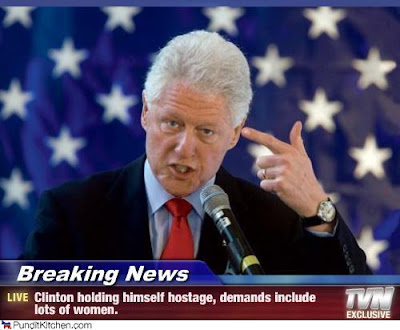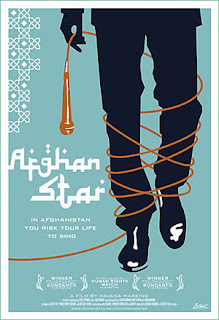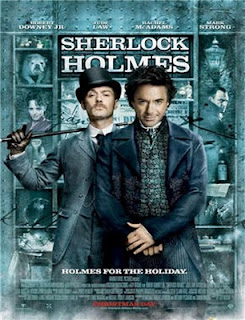Well, to me, it's obvious. The guy is building a combustible add-on to his abode that will house the followers of his religious cult. And the boulders? Why, of course, they are needed to shield the
Wednesday, March 31, 2010
Walter Cunningham, what are you doing ...
A lot of folks around this particular home in Keller are wondering what this fellow is up to, what with the grading of the back yard and the placement of the boulders at the crest of the hill. Even Keller city officials, from what I have been led to believe, have tried to contact the fellow that owns this property to learn what he has in mind, but apparently he's never around when the friendly officials come around to call or even when they cite him for code violations.
Well, to me, it's obvious. The guy is building a combustible add-on to his abode that will house the followers of his religious cult. And the boulders? Why, of course, they are needed to shield thesnipers security personnel.
Well, to me, it's obvious. The guy is building a combustible add-on to his abode that will house the followers of his religious cult. And the boulders? Why, of course, they are needed to shield the
Released yesterday on DVD: "The Trouble With Romance"
Grade: F
The Trouble With Romance
In vignettes that range from grating to pointless to thoroughly disgusting, four variously entwined couples navigate romantic crises in separate rooms of the same hotel. In one a married woman surprises her henpecked husband with an impromptu bondage session and a three-way with her office temp. In another a gorgeous prostitute donates her services to a heartbroken client as a reminder than love is priceless. Oh please: even Julia Roberts
Unlike Michael Knowles
Released yesterday on DVD: "Afghan Star"
Grade: B
Early on in Afghan Star
But in a country still reeling from years of tyrannical Taliban rule (during which dancing, listening to music and watching TV were all considered crimes), along with a long legacy of civil war among ethnic groups, the belief that a little song and dance will suddenly bring everyone together might seem a bit naive. Or is it?
Afghan Star reveals that the Afghan people strongly crave to make up for years lost to Taliban repression and catch up with the 21st century; the opportunity to sing and dance in public again instantly overcomes longstanding tribal conflicts that have kept the country in a perpetual state of war. Suddenly, just as the program's creater envisioned, everyone is more interested in rooting for their favorite Star contestant than they are in settling old grudges.
But the enthusiasm only goes so far. When finalist Setara Hussainzada dares to let her head scarf slide down a little and dances a bit during a performance, the resulting outrage is so widespread one man suggests "She deserves to be killed." Fearful for her life, Setara goes into hiding.
When interviewed by the filmmakers, though, the aspiring singer remains defiant. Like the women who show up for a taping of Afghan Star sans scarves or burqas, the overwhelming majority of the people we meet in the film equate the program's snowballing popularity with a sense of freedom and democracy. Suddenly, everyone's vote really does count, and the feeling is intoxicating.
If Afghan Star is no less tacky than its American or British counterparts, the important cultural role it plays in the lives of its audience goes far beyond water-cooler fodder. Focusing on the contestants who make the initial cut - two men and two women - the film can't resisting wringing some American Idol-style suspense from speculation about who the eventual victor will be. But the movie also leaves no doubt as to who the real winners are.
Tuesday, March 30, 2010
Released today on DVD: "The Yes Men Fix the World"
Grade: B
Take the prankster chutzpah of Sacha Baron Cohen
In 2003, they released The Yes Men
They're no longer content to just spoof the stuffing out of monolithic business interests. Instead, they want to change things.
Mike Bonanno
The film's opening sequence shows Bichlbaum in December 2004, as he prepped for a spot with the BBC. They thought they'd landed an interview with a Dow official named Jude Finisterra. Instead, they got a world-class liar who calmly declared that Dow, recently merged with Union Carbide, had decided to take "full responsibility" for the 1984 Bhopal disaster and planned to spend $12 billion on victim restitution.
It was quite a feat. Dow stock lost $2 billion in 20 minutes. By any measure it was the Yes Men's biggest and boldest hoax - though they came close just a few months ago, when Bichlbaum "announced" a position shift on climate change for the U.S. Chamber of Commerce. (The chamber filed suit.)
Politically, Yes Men Fix the World covers much the same territory as Moore's Capitalism: A Love Story
Monday, March 29, 2010
To be released tomorrow on DVD: "Sherlock Holmes"
Grade: B
Early in Sherlock Holmes
Doyle's Holmes, who arrived in Victorian pop culture in 1887 (with the publication of A Study in Scarlet
But Holmes has never been much for physical violence, and the chief innovation of this new, franchise-ready incarnation, directed by Guy Ritchie
A smart one, for sure, and as played by Downey, with his characteristic twitchy-wit and haggard insouciance, he has more intelligence than the movie knows what to do with. (His Holmes has also lost the deerstalker, favoring battered porkpie - or bowlerlike headwear, perhaps in homage to Charlie Chaplin
Of course intelligence has never ranked high among either Ritchie's interests or his attributes as a filmmaker. His primary desire, most successfully realized early in his directing career, in Lock, Stock and Two Smoking Barrels
Still, it's getting close to Easter, and the teenage boys in the house have fructose in their bloodstreams and time on their hands, so let's call it half a compliment. There are worse things than loutish, laddish cool, and as a series of poses and stunts, Sherlock Holmes is intermittently diverting.
The visual style - a smoky, greasy, steam-punk rendering of Victorian London, full of soot and guts and bad teeth and period clothes - shows some undeniable flair. And so do the kinetic chases and scrapes that lead us through the city, as Holmes and his pal Watson (Jude Law
Speaking of which: the beard is Rachel McAdams
McAdams, in any case, is a perfectly charming actress and performs gamely as the third wheel of this action-bromance tricycle. But Irene, though she figures in a few of Conan Doyle's stories, feels in this movie more like a somewhat cynical commercial contrivance. She offers a little something for the ladies - who, according to airtight Hollywood corporate logic, are more likely to rent a movie like this one if there's a feisty woman in it - and also something for the lads, who, much as they may dig fights and explosions and guns and chases, also like girls.
Just like Holmes and Watson! They really do, in spite of the barely sublimated physical passion they manifest for each other in nearly every scene. I'm sure Amazon, Movie Trading Company, Netflix, Blockbuster et al would like me to change the subject and tell you about the amazing diabolical conspiracy that tests Holmes's ingenuity, along with his faith in the supremacy of reason.
It seems that an evil aristocrat (Mark Strong
To be released Tuesday on DVD: "I Sell the Dead"
Grave robber Arthur Blake has "five hours to kill" (his words) before he becomes a headless body, courtesy of the guillotine. (His partner in crime, Willie Grimes, has already lost his head.)
So Blake and a Father Duffy share a bottle of booze in Blake's cell as the condemned man tells how he got into that ghoulish line of work.
Thus begins the lively I Sell the Dead
Blake's tale, set in 19th-century Ireland, involves stolen bodies, zombies, vampires, wanton women, cutthroat rivals - one is described by Blake as "one of the meanest bastards I've ever met, either alive or dead" - and enough beer to float a coffin.
Downtown icon Larry Fessenden
I Sell the Dead references the Edgar Allan Poe
Genre fans will definitely get off on I Sell the Dead, but outsiders might be less enthusiastic.
Subscribe to:
Posts (Atom)










